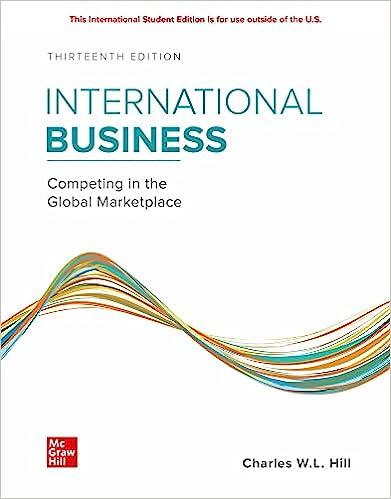At 3:50 a.m. on March 2, 2018, Donald Trump, the 45th President of the United States, took
Question:
Trump’s tweet was a response to backlash over his decision to impose a 25 percent tariff on imports of steel, and a 10 percent tariff on imports of aluminum. The Trump administration claimed these tariffs were necessary to protect two industries that were important for national security. His critics had a different take. They argued that the tariffs would raise input costs for consumers of steel and aluminum, which included construction companies, manufacturers of construction equipment, appliance makers, auto manufacturers, makers of containers and packaging (e.g., beer cans), and aerospace companies. Among those hit by higher costs due to these tariffs would be two of the U.S.’s largest exporters:
Boeing and Caterpillar Tractor. The critics also noted that there are only 140,000 people employed in the steel and aluminum industries, whereas 6.5 million Americans are employed in industries that use steel and aluminum, where input prices have just gone up.
Trump’s actions should not have been a surprise. In contrast to all U.S. presidents since World War II, Donald Trump has long voiced strong opposition to trade deals designed to lower tariff barriers and foster the free flow of goods and services between the United States and its trading partners. During the presidential election campaign, he called the North American Free Trade Agreement (NAFTA) “the worst trade deal maybe ever signed anywhere.” Upon taking office, his administration launched a renegotiation of NAFTA, with the aim of making the treaty more favorable to the U.S. As a candidate, he vowed to “kill” the Trans Pacific Partnership (TPP), a free trade deal among 12 Pacific Rim countries, including the United States (but excluding China), negotiated by the Obama administration. In his first week in office, he signed an executive order formally withdrawing the United States from the TPP. He has even threatened to pull the United States out of the World Trade Organization (WTO) if the global trade body interferes with his plans to impose tariffs.
Trump’s position seems to be based on a belief that trade is a game that the United States needs to win. He appears to equate winning with running a trade surplus, and sees the persistent U.S. trade deficit as a sign of American weakness.
In his words, “you only have to look at our trade deficit to see that we are being taken to the cleaners by our trading partners.”** He believes that other countries have taken advantage of the United States in trade deals, and the result has been a sharp decline in manufacturing jobs in the United States. China and Mexico have been frequent targets of his criticisms, and he has argued that China’s trade surplus with the United States is a result of that country’s currency manipulation, which he believes has made Chinese exports artificially cheap. He seems to think that the U.S. can win at the trade game by becoming a tougher negotiator and extracting favorable terms from foreign nations that want access to the U.S. market. He has even characterized previous American trade negotiators as “stupid people,” “political hacks and diplomats,” and “saps,” and has suggested that he should become “negotiator in chief.”
Questions
1. What economic theory of trade do Donald Trump’s views seem most closely aligned with?
2. What are the possible benefits of Donald Trump’s position on international trade? What are the potential costs and risks of his position?
3. Do you think Trump is correct? Are trade wars good and easy to win? What does it mean to “win” a trade war? What does it mean to “lose”?
Step by Step Answer:

ISE International Business Competing In The Global Marketplace
ISBN: 9781260575866
13th International Edition
Authors: Charles Hill





